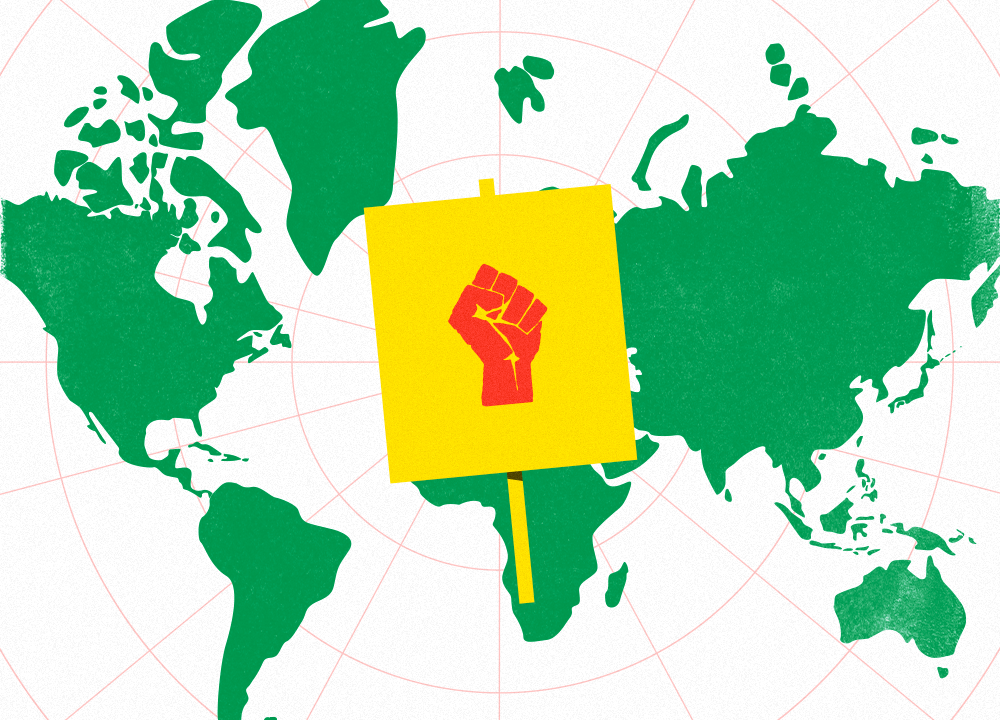Bangladeshi diaspora have duty to fight back
Bangladeshis of the diaspora have the privilege of existing outside the oppressive laws of the current Bangladeshi government, as well as a duty to fight back, spread awareness, and amplify the voices of dissent.

The public who will judge you
Has woken up today, Your Honour.
Your guns, your hangings, your prison tortures
Will be crushed by their weight
- Salil Chowdhury, 1945 [From the Bengali song Bicharpoti, Tomar Bichar]
This song, written in 1945, two years before India’s independence from tyrannical British colonial rule, is as fitting today as young Bangladeshis fight against fascism, tyranny, corruption, and injustice.
Throughout history, in the suffocating face of tyranny, art — with its ability to inspire and unite — has always emerged as a powerful weapon of dissent and for challenging oppressive regimes.
Art’s effectiveness lies in its ability to bypass logic and create a lasting emotional connection that resonates long after the initial experience has passed, prompting reflection, discussion, and action.
Art also fosters a powerful sense of community and connection—a protest song becomes an anthem, a street mural a rallying cry. Art binds together individuals and communities in pursuit of a common cause, amplifying the message of dissent and empowering collective action.
Dissent, standing up against oppression, is never without risk, however.
Throughout history, artists who dared to challenge the powerful have faced censorship, persecution, and even violence, yet the human spirit’s yearning for expression persists. From Guernica’s searing indictment of war to the defiant anthems of civil rights movements, art has offered a vital platform for those whose voices are stifled.
Whenever fascist regimes have sought to control us — mind, body, and spirit — our rebellious people have never hesitated to fight back through whichever medium possible.
Bangladeshis of the diaspora have the privilege of existing outside the oppressive laws of the current Bangladeshi government, as well as a duty to fight back, spread awareness, and amplify the voices of dissent.
With South Asian representation and inclusivity growing in mainstream media, the deshi diaspora’s rich cultural heritage and diversity are finally being viewed through a more nuanced lens.
The fight for representation is about fostering a sense of belonging in a world that often feels homogeneous. It’s about allowing young deshis to see themselves as artists, entrepreneurs, or athletes as well as doctors. It’s about shattering the invisibility cloak that can shroud entire communities while amplifying our voices. What’s an accurate representation if not a form of dissent in itself?
Representation also needs to extend beyond a single, token character—we need stories that delve into the complexities of the South Asian experience; of languages, religions, customs, and the politics that surround our diaspora identity.
We need South Asian writers, directors, and producers at the table, ensuring our stories are told with authenticity. Then, and only then, can we ensure stories that resonate with the vast and diverse South Asian communities.
When faced with fascism and tyranny, as much of the world seems to be today, art continues to be a potent tool. It can challenge authority, give a voice to oppressed communities and offer hope. As long as South Asian artists continue to create and resist, to add their voices and perspectives to the glocal conversation — our art will continue to be a beacon of freedom in the darkest of times.
In a world of ephemera — the 24-hour media cycle, the 15 minutes of social media infamy — accurate representation in art and culture serves a wider purpose; it’s not just a privilege, it’s a necessity.
Preserving, crystallising, and amplifying the stories of struggle creates both documentation and a narrative by which the situation can be understood, not only in some distant abstracted historical context but in the now.●
Musarrat Rahman is a UK-based Bangladeshi fashion designer.